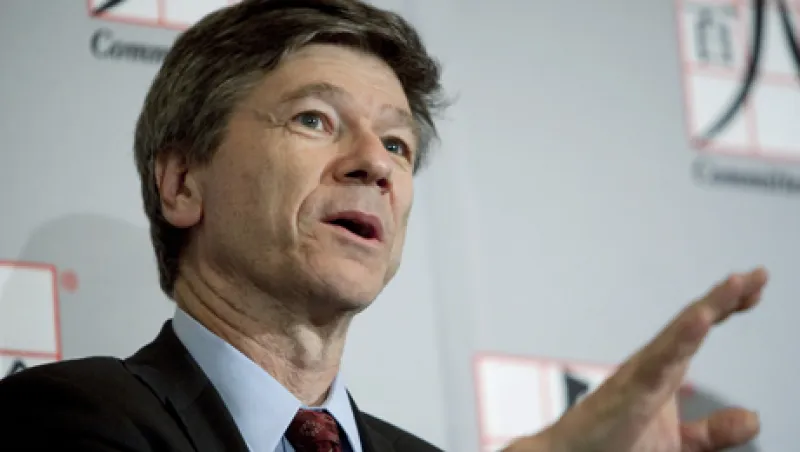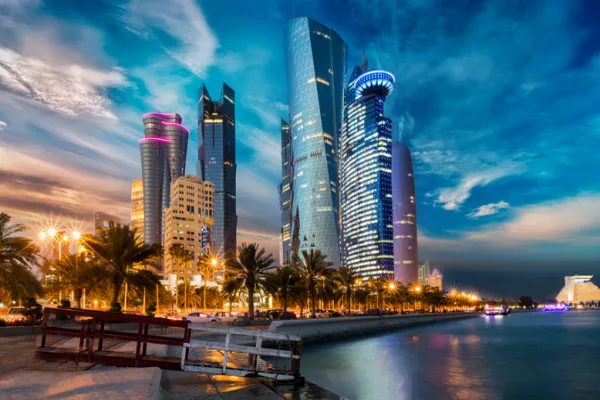The job description sounds enviable: president of a $300 billion-in-assets lender, no pesky Dodd-Frank constraints, extensive travel, frequent meetings with global leaders, photo ops with Bono and a tax-free salary of more than $400,000.
All true, yet there’s a curious lack of candidates to become the next World Bank president.
After Robert Zoellick announced last month that he would stand down when his term expires at the end of June, there was some immediate speculation that the Obama administration would nominate former Treasury secretary Lawrence Summers or perhaps secretary of state Hillary Clinton for the post. Then, nothing. Radio silence. No hints from the White House. Even more surprising, no parade of contenders from emerging-markets countries asserting that it’s their time for the top job, as happened last year when Dominique Strauss-Kahn suddenly resigned from the International Monetary Fund. Officials say barely a peep was heard about the post at the G-20 meeting, normally a hotbed of speculation, in Mexico City late last month. Only one person — Jeffrey Sachs, the development economist who heads the Earth Institute at Columbia University — has formally declared his candidacy.
The curious standoff, if that’s what it is, says a lot about the Bank and the current state of geopolitics, according to longtime observers of the international financial institutions (IFIs). First, the Bank has lost some of its luster. The institution is arguably as important as ever: It made a record $70.9 billion in lending commitments in the past two years as part of global efforts to combat the effects of the financial crisis. And in December 2010, Zoellick won agreement from member governments for a record $49.3 billion increase in funding for the Bank’s main lending vehicle, the International Development Association. Yet the Bank is still regarded as the junior partner to its neighbor across Washington’s 19th Street. The IMF, after all, has the power to decide whether Greece lives or dies, financially speaking; that explains why the Europeans were so determined to have Christine Lagarde succeed Strauss-Kahn last year.
Second, and more important, no country seems ready to challenge Washington’s lock on the job. At first glance this seems counterintuitive. Emerging-markets nations have grown increasingly critical of the long-standing arrangement whereby the U.S. has controlled the World Bank presidency and the Europeans have led the IMF, and Mexico’s central bank governor, Agustín Carstens, campaigned actively for the IMF post last year against Lagarde. Yet Americans are not Europeans. The U.S. is not overrepresented at the Bank and the Fund the way that European countries are. The U.S., in spite of its troubles, remains the only superpower capable of exerting economic, political and military influence around the globe. And in a U.S. election year, outsiders interested in the smooth functioning and financing of the Bank may think twice about a move that would almost certainly draw fire from the U.S. Congress. “No one will dare challenge the U.S.,” says Domenico Lombardi, president of the Oxford Institute for Economic Policy and a former executive director of the Bank. The absence of campaigning and complaining “signals that members will go ahead and support the U.S. candidate,” he adds.
The final reason that non-Americans are not yet angling for the World Bank job lies with the emerging-markets countries themselves. They may chafe at U.S. and European hegemony at the IFIs, but they share no vision of how to replace it. The IMF succession last year showed that the BRIC countries are more apt to compete with one another than to unite behind a common candidate. “The emerging economies are not a politically cohesive group,” says Lombardi.
That’s a shame, because there are a number of well-qualified people from developing countries who would be great candidates, says Nancy Birdsall, head of the Washington-based Center for Global Development and a former Bank staffer. She cites Ngozi Okonjo-Iweala, the highly regarded Nigerian finance minister who served a stint as World Bank managing director under Zoellick from 2007 to 2011, and Nandan Nilekani, co-founder of IT giant Infosys, who is now leading an Indian government effort to develop a biometric database for its citizens. The Bank’s current managing director, former Indonesian finance minister Sri Mulyani Indrawati, as well as its chief economist, Justin Lin of China, also boast strong credentials.
Columbia’s Sachs, an American with strong experience and contacts in the developing world, put himself forward late last week. He told Institutional Investor he would sharpen the World Bank’s focus on achieving the Millennium Development Goals, a United Nations program aimed at reducing extreme poverty. “This is what I do for a living,” says Sachs, a special adviser to UN secretary general Ban Ki-moon. Given his background, Sachs could potentially satisfy Washington and developing countries. He says he has talked with senior Obama administration officials about his candidacy and he expects to win support from a number of other countries.
Treasury secretary Timothy Geithner has said the U.S. will put forward an experienced candidate for the post by the March 23 deadline for nominations and insists the U.S. favors an open selection process. Birdsall says it’s vital that other countries take him at his word. “The key is that there is a competitive process that ensures that whoever wins has legitimacy,” she says.
Just don’t expect anyone outside the U.S. to make the first move.






